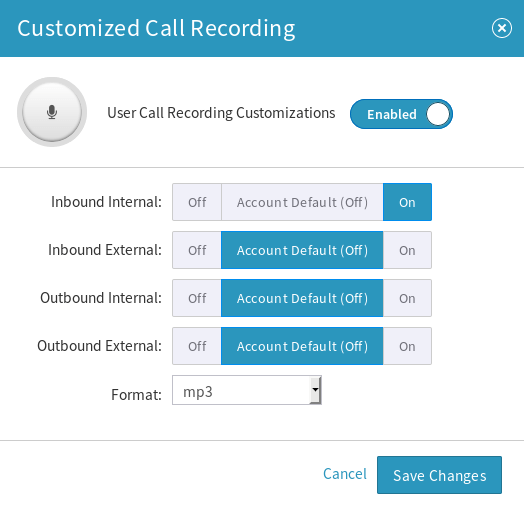 Our Video Calling beta test is in progress and has called for the need to address an important question: Is it legal to record phone calls?
Our Video Calling beta test is in progress and has called for the need to address an important question: Is it legal to record phone calls?
The broad answer to this question is “yes.” However, the legality surrounding voice and video calls through our Business Phone Plans surrounds issues of one-party and two-party consent – the reason why you hear messages like “your call may be recorded for quality assurance purposes” at the beginning of many calls to customer service centers.
Party Consent
The Digital Media Law Project offers a detailed look at what one-party consent and two-party consent laws mean.
In short, the requirement of one-party consent could allow for a call to be recorded if only one party in the call – excluding the recorder – consents to the recording. When you make a call to a business, its disclaimer about call recording tries to gain the permission from the caller.
Two-party consent is different. Laws that require two-party consent ask for all parties of the conversation to give consent to a recording. This type of law has obvious ramifications for the recording of group calls using our Video Calling or Audio Conferencing features.
Law Origination
These types of call recording consent laws originate from a number of different legislation. The Matthiesen, Wickert & Lehrer, S.C law firm points out federal legislation – including the Federal Communications Act of 1934, Federal Wiretap Act, and Electronic Communications Privacy Act of 1986 – that form the basis for federal law that, in general, requires only one-party consent to make call recording legal.
Many states, MWL Law says, follow this sentiment with their own legislation that only requires one-party consent. As of the writing of this article, though, 11 states have stricter legislation on the books that requires two-party consent.
What About Your Business?
Depending on where your business has residence, your answer to “Is it legal to record phone calls?” could be different than what you expect.
What we can tell you is that many businesses legally record their voice and video interactions with customers without stepping afoul of the law. Disclaimers are often necessary to gain consent, so when you’ve set up the proper notifications, you can reliably include call recording as a consistent part of your business practices.
 Is Recording Phone Calls Legal?
Is Recording Phone Calls Legal?
VirtualPBX provides Call Recording for inbound and outbound calling. You can apply it at the user level, so some users on your system can record inbound, some inbound, and others both or not at all.
Our reach extends only to the point of offering you a high-quality product that’s capable of storing your conversations on your plan or in conjunction with Amazon Storage. We expect your business to complete its due diligence with regard to capturing conversations in a legal manner. Your local legal counsel is the first place to start when considering recordings for your own business.







